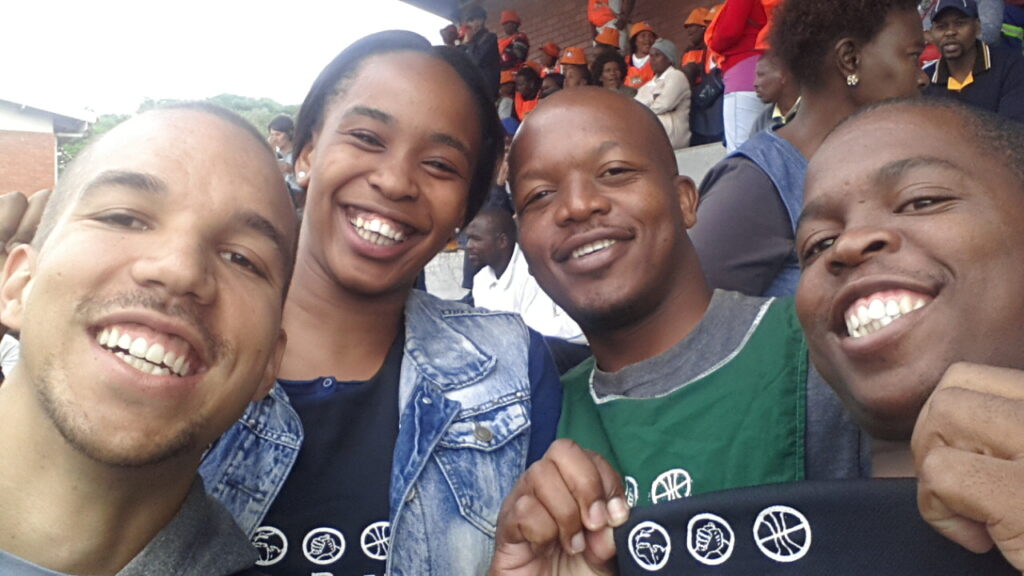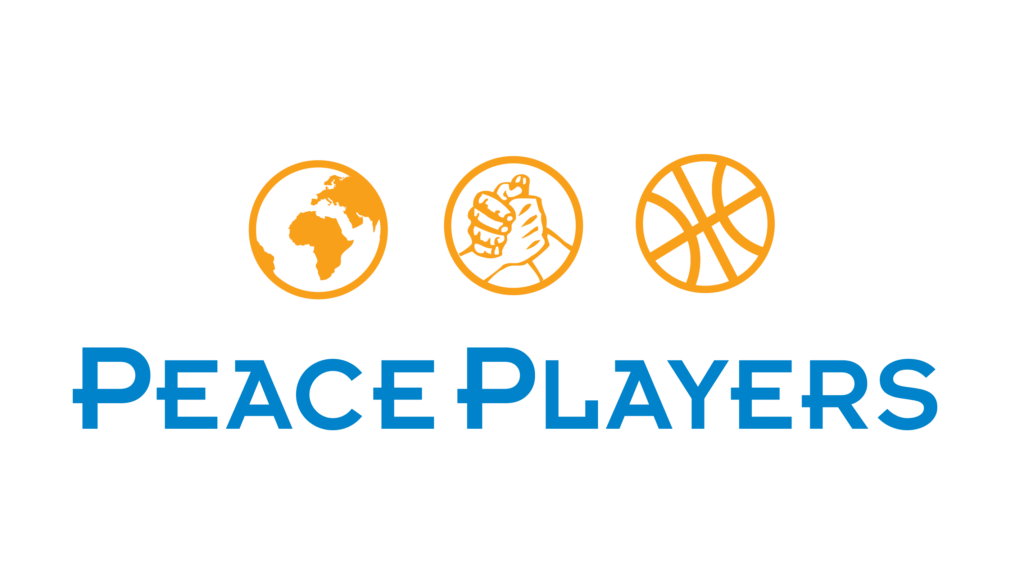The Heart of the Life Skills Curriculum
Ntobeko Ngcamu
July 31, 2023
SHARE
Umlazi, Section Q was Ntobeko Ngcamu’s happy place. It’s where he spent time with friends and family. But this environment didn’t allow him the mobility to go where he wanted. This was a byproduct of systemic isolation from opportunities – a characteristic of the many townships in South Africa. When Ntobeko did leave Umlazi, he would visit family in a rural area, hours away from Durban, named Richmond. These visits were serene and peaceful and ultimately helped Ntobeko reconnect with himself. If you ask any of his friends, he is a laid-back person who deeply cares about making an impact. Coach Ntobeko would eventually use his personality, genuine delivery, and passion for basketball to facilitate life skills. As a result, he became a member of Playing for Peace in 2003.

Ntobeko rarely went to other sections in Umlazi because he was comfortable within his immediate environment, Umlazi, section Q. However, he soon realized that this very thought process could be holding him back from maximizing his impact. Playing for Peace helped Ntobkeo see the world as a bigger place. Ntobeko started assisting young kids in seeing the world through another lens, rather than the scope of their immediate surroundings.
His journey began when Coach Simphiwe Nsuntsha introduced him to the organization. Ntobeko started as a coach in 2003 at Saphinda Primary School. When asked why he started doing this type of work, Ntobeko said, “It all comes from the desire to give back to the community and for the love of the sport.” For Ntobeko, being a part of something bigger than himself was uplifting for his spirit. He embraced being that accessible person young people could reach for guidance at any time.
The combination of Ntobeko’s upbringing in Umlazi township and traveling to family in a rural area in Richmond, gave Ntobeko the idea of making an impact with Playing for Peace outside of just Umlazi. In these two areas, he got two vastly different pictures of life – rural and township. Ntobeko later visited Umbumbulu, a semi-rural area, where he got another perspective of life. He fell in love with the energy that the people of Umbumbulu exuded along with the community atmosphere. When he wasn’t coaching in Umlazi, he dedicated his time to assisting in Umbumbulu with coaching clinics. The following year, he applied for the position and became the Area Manager in Umbumbulu. There, Ntobeko grasped how much he could spark the next generation’s minds through a sport that the community initially mistook for netball and often viewed as being only for females.
Ntobeko and Playing for Peace introduced a few things to the community for the first time: practicing a unisex sport, participating in career exhibitions, and attending cross-community games in other townships and city areas. However, these opportunities were rare because of the geographic location of Umbumbulu and the community’s cultural norms, which isolated them from other communities.
Most people from Umbumbulu felt that they had to work ten times harder than someone from the city to become successful in life. “I witnessed many participants from Umbumbulu programs graduate from Playing for Peace then go onto university. Some of them work in big cities like Johannesburg and Cape Town. A participant even went on to study medicine in Cuba.” says Ntobeko. When asked what are a few words to describe people from Umbumbulu? Ntobeko says the community members live out the values of “Ubuntu, kindness and respectfulness.” Ubuntu is a well-known South-African term which can be summed-up as human compassion and unity.
Ntobeko was helping kids see outside of their immediate environment and actively showing them life from a broader perspective. Relationship and trust building within the schools, community, coaches, and participants was a cultural adjustment for him in Umbumbulu. “I had to learn to be a different type of leader, facilitator, meeting chairperson, problem solver, and communicator,” Ntobeko adds.
During that time, he dove deep into the life skills aspect of the program. Before this, Playing for Peace had taken multiple turns of focus: First it started as an HIV/AIDS education and prevention program, then moved to a Personal and Character Development program, then onto a Leadership and Mentorship program. Slowly but surely, Ntobeko would lead the organization to take a turn in a different direction. He had a natural feel for empowering participants to see themselves as powerful beings rather than downplaying the contributions they could make to the world. In 2011, Ntobeko moved onto a role everyone knew was for him – Life Skills and Monitoring and Evaluation Expert. While it hasn’t always been easy for him, he and most people know he is the foundation of life skills facilitation in the entire organization.
Ntobeko says, “The most challenging thing for me and my fellow coaches was to teach life skills to students who have been in a classroom 5+ hours ahead of a basketball session. Getting hold of their attention and full participation was only made possible by a well trained facilitator-coach.”
The life skills curriculum and topics they chose were significant, relevant, and aligned with the issues that the community and South Africa were facing at that time. The most challenging
subject within the holistic curriculum was HIV/AIDS because some of the coaches and participants were affected by the virus. Ntobeko appropriately adjusted the curriculum based on the times and the new focus they’d transition into. He credits Thobani Khumalo for co-writing the organization’s basketball side of the curriculum.
Today, Ntobeko reflects on the days when he wasn’t able to travel to new places outside of Umlazi, Section Q. He thanks Playing for Peace for providing mobility for him to travel. He has also traveled to Uganda and Cyprus as a result of his work with the organization. Through other experiences, he’s been able to travel throughout each province in South Africa. Ntobeko parted ways with the organization in 2018 but he is hopeful that he will do more sport for development
work in South Africa and across the world. After all, Ntobeko credits sport for saving him, helping him grow, and being the reason why he interacts with different people and cultures.





